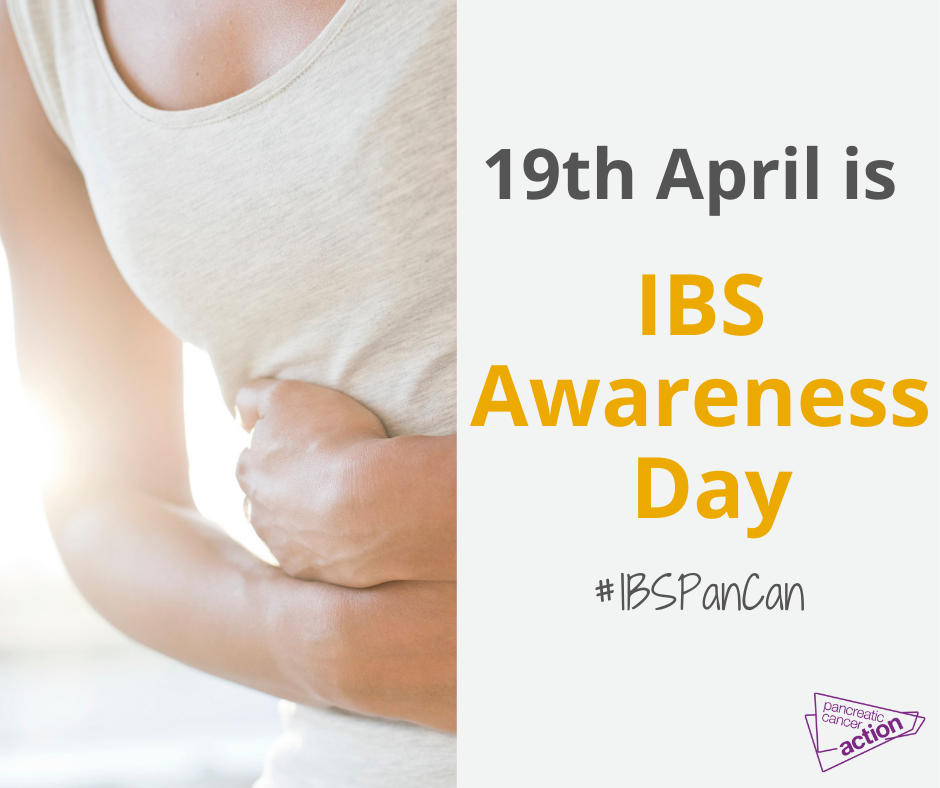World IBS Day 2022
The 19th of April is World IBS Day. IBS is a common disorder and is often an initial misdiagnosis made by GPs prior to a pancreatic cancer diagnosis. Raising awareness of this is so important in providing patients with enough knowledge to challenge an IBS diagnosis if they think there is something more sinister going on.

What is IBS?
Irritable Bowel Syndrome is a common condition that affects the digestive system. It is more than just an “upset tummy” but a potentially life-long, life-changing condition with no cure. However, it can be managed with medication and certain dietary requirements.
Figures vary but it is thought that 1 in 20 people in the UK suffer from IBS and affects twice as many women than it does men. Also, those with IBS are twice as likely to take time off work costing the UK approximately £800,000 a year in terms of lost productivity and absence from work.
Symptoms of IBS
There may be days when symptoms are better and days when they are worse (flare-ups). They may be triggered by food or drink. The most common symptoms are:
- Stomach pain or cramps – usually worse after eating and better following a bowel movement.
- Bloating – the tummy feels uncomfortably full or swollen.
- Diarrhoea – watery stool and the sudden urge to go to the toilet.
- Constipation – a strain when passing a bowel movement and the feeling that you have not emptied your bowels fully.
IBS can also cause:
- Farting (flatulence).
- Passing mucus from your bottom.
- Tiredness and a lack of energy.
- Feeling sick (nausea).
- Backache.
- Problems passing urine – needing to pee often, sudden urges to pee or the feeling you have not emptied your bladder fully.
- Not always being able to control when you pass a bowel movement – bowel incontinence.
Similarity to Pancreatic Cancer
IBS and pancreatic cancer share some of the same symptoms, e.g., stomach pain, tiredness, nausea, backache, change in bowel habit. IBS is often considered a “diagnosis of exclusion” – this means GPs and other health care professionals may diagnose someone with IBS when there is no other explanation for their symptoms (however, this approach to IBS diagnosis is changing). This can lead to a misdiagnosis and in some cases, can mask pancreatic cancer.
Click the link below to read Bethan Dursley’s story of her father who was faced with this very problem.
Signs to look out for
One main symptom of both IBS and pancreatic cancer is a change in bowel habits and stool. For someone with pancreatic cancer, their stool can be pale and/or oily– which is called steatorrhea. The stool may be large, smell horrible, float and can be difficult to flush down the toilet. This is caused by fat in the stool.
If you notice any changes in your bowel habits, it is always advised to contact your GP. When visiting your GP, it is always helpful to have something prepared to help your GP understand your symptoms to help you find a solution as quick as possible.
Our symptoms diary is an excellent tool for this and can be accessed here.